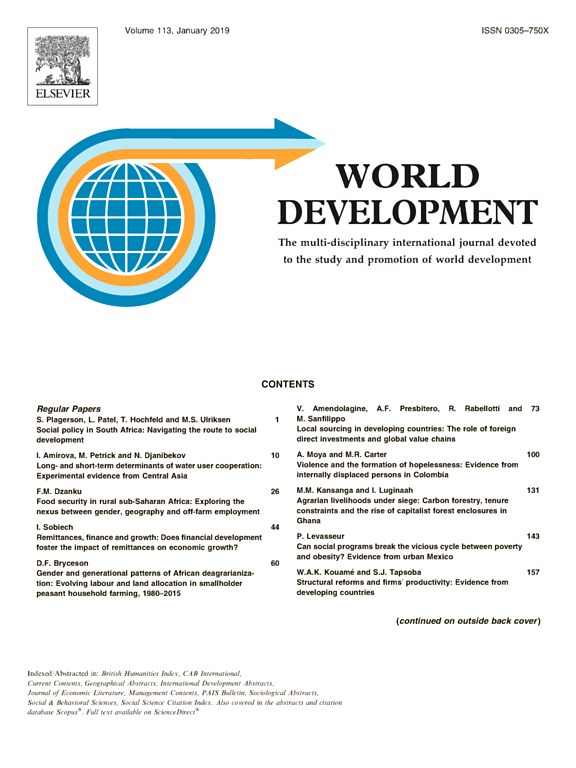Scientific Publication
The Role of Forest-Related Income in Household Economies and Rural Livelihoods in the Border-Region of Southern China
Quarterly socioeconomic data from 240 households are used to study the links between forest-related income and rural livelihoods in southern China. Results show average forest-related income shares of 31.5%, which was predominantly derived from cultivated non-timber sources. Forest-related income was important to households at all income levels, although lower income households were more dependent due to a lack of other sources. Higher income households monopolized off-farm income and had more land than low income households. Forest-related income could be increased by making forest land more accessible to the poor, improving productivity, and removing constraints to smallholder engagement in timber marketing

